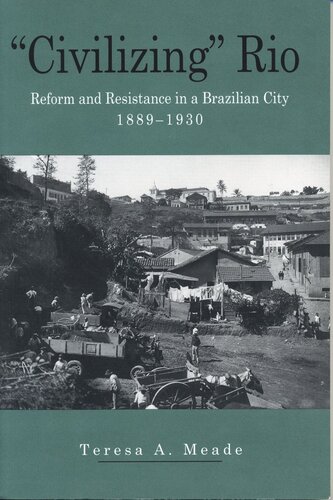

Most ebook files are in PDF format, so you can easily read them using various software such as Foxit Reader or directly on the Google Chrome browser.
Some ebook files are released by publishers in other formats such as .awz, .mobi, .epub, .fb2, etc. You may need to install specific software to read these formats on mobile/PC, such as Calibre.
Please read the tutorial at this link: https://ebookbell.com/faq
We offer FREE conversion to the popular formats you request; however, this may take some time. Therefore, right after payment, please email us, and we will try to provide the service as quickly as possible.
For some exceptional file formats or broken links (if any), please refrain from opening any disputes. Instead, email us first, and we will try to assist within a maximum of 6 hours.
EbookBell Team

5.0
20 reviewsA massive urban renewal and public-health campaign in the first decades of the nineteenth century transformed Brazil's capital into a showcase of European architecture and public works. The renovation of Rio, or "civilization" campaign, as the government called it, widened streets, modernized the port, and improved sanitation, lighting, and public transportation. These changes made life worse, not better, for the majority of the city's residents, however; the laboring poor could no longer afford to live in the downtown, and the public-health plan did not extend to the peripheral areas where they were being forced to move. Their resistance is the focus of Teresa Meade's study.
Meade details how Rio grew according to the requirements of international capital, which financed, planned, and oversaw the renewal—and how local movements resisted these powerful, distant forces. She also traces the popular rebellion that continued for more than twenty years after the renovation ended in 1909, illustrating that community protests are the major characteristic of political life in the modern era.